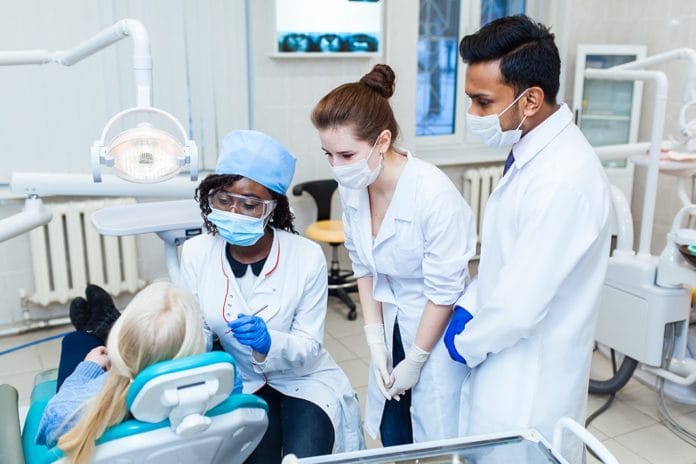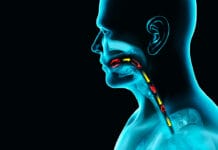“Thanks for playing our little game.”
I’ll never forget hearing those words after taking my clinical board exam. My anxiety was already at an all-time high because of the stress that comes with preparing and completing the board exam. The last thing I needed was a snarky remark from one of the proctors.
One of the most debated topics in dentistry is the relevance of the clinical board in its current status. Is it ethical? Does it accurately showcase the skills of the clinician? Is there a better way? The argument against a clinical board has always been the fact that dentistry is the only health care profession where it is required to pass both a national written board and a state clinical board before obtaining a license to practice.
While I think it is a little excessive in comparison to other fields, I have no objection to the requirement. I believe it’s wonderful to have checks and balances, especially when it comes to licensing in health care. However, I don’t agree with how the board is set up currently.
Is it ethical?
Regarding whether the board exam is ethical, I think it can go either way, depending on each clinician being tested. The hygienist is required to select a patient based on their calculus level and periodontal state. Depending on which regional testing agency is used, there are different results for a nonqualifying patient. The hygienist is either dismissed immediately from the exam, is allowed to sit through the exam even though they have no chance at a passing grade, or is allowed to retrieve a backup patient from the waiting area.
These guidelines allow for an uneven playing field around the nation. The high cost of the exam also makes it tempting for the hygienist to cut corners and do unethical things they ordinarily wouldn’t even consider.
The Review Board at Texas A&M Health Science Center of Baylor College of Dentistry conducted a survey for hygienists evaluating the unethical practices associated with the clinical board. Hygienists were asked about patient selection, informed consent, follow-up treatment, patient payment, and paperwork processes. While some hygienists had help selecting their patients, and some did the paperwork beforehand (both of which goes against the rules of certain testing agencies), my biggest focus was the unethical practices against the patient.
For the most part, the survey participants claimed to explain the process well to the patient. However, around a third admitted to taking extra x-rays for the perfect passing shot, and only 50% provided follow-up treatment for the patient.1 Every hygienist should have been taught the ALARA standard (as low as reasonably achievable) when it comes to exposing patients to ionizing radiation. Taking excessive x-rays to ensure a passing grade is unethical.
Providing follow-up treatment should be standard too. When a patient is selected for boards, the patient should be aware of two things. One, their necessary treatment is potentially being put off to a later date, which can possibly allow their condition to worsen. And, two, only a small portion of treatment will be provided at the time of the exam. If these stipulations are not explained or agreed to, coercing the patient to agree anyway is unethical.
The survey also revealed that 61.6% of the participants paid their patients.1 I’m not opposed to paying the patient for their time and sacrifice, but it can easily be a way to manipulate the patient into allowing the hygienist to perform unethical procedures. While most of the participants stuck to being ethical, it’s a scary fact that pressure can make people do bad things.
Showcasing a clinician’s skills?
A lot of factors go into passing the board exam. Did the patient show up for the exam? Did the patient have enough calculus to qualify? Did the patient cooperate during treatment? Did the clinician get enough rest the night before? Did the clinician come prepared with all the paperwork and required tools? Was the operatory in perfect working order? Were the judges calibrated fairly while checking the patients? The list of factors is endless.
The point is that many factors are out of the clinician’s control. I don’t believe it is accurate to judge a clinician on a single quadrant on a single patient on a single day. Bad days happen, and let’s be honest: Bad patients happen too. Just as a great clinician can have a really bad day and fail, a lousy clinician can get lucky and squeak by with a passing grade. The board is intended as a way to ensure that only the best are licensed, but either scenario defeats the purpose.
Is there a better way?
Ideas have been bounced around for years to come up with a way to eliminate the clinical board exam. It would be reasonable to argue that since the state determines accreditation of universities and programs, and the state also deems the staff proficient in providing education to the students, that requiring a state legislated board is redundant. Since a state board exam is still required, however, changing the way it is administered is a good start. In 2013, New York passed legislation that eliminated the dental board by requiring a Post-Graduate Year Program (PGY-1). Under this regulation, newly graduated dental students practice under an experienced dentist before being allowed to own their own practice.2 In 2009, Minnesota allowed dental students to take a non-patient based exam.3 In 2011, California passed legislation to require a portfolio of seven patients throughout the last year of dental school to be used as a replacement for a board exam.4
While all these changes have only affected dental students, I think the same line of thought can be transferred to hygiene students as well.
While the proctor at my board exam thought it was humorous to refer to the exam as a game, I can now look back and agree with him. The current status of the clinical board is unethical and does not accurately pass or fail students. There is a better way to license student hygienists. Hopefully, we can see an end to this game in the near future.
Now Check Out the Self-Study, Peer-Reviewed CE Courses from Today’s RDH!
Listen to the Today’s RDH Dental Hygiene Podcast Below:
References
- Lantzy, M.J., Muzzin, K.B., DeWald, J.P., Solomon, E.S., Campbell, P.R., Mallonee, L. The ethics of live patients use in dental hygiene clinical licensure examinations: a national survey. The Journal of Dental Education. 2012; 76(6):667-681.
- Lasky, R.E., Shub, J.L. Dental licensure reaches a crossroads: a rationale and method for reform. The Journal of Dental Education. 2003; 67(3):295–300.
- Fox, K. Minnesota oks Canadian exam: first state to recognize non-patient based exams. ADA News. 2009.
- Governor signs portfolio licensure bill (press release). Sacramento: California Dental Association. 2011.












